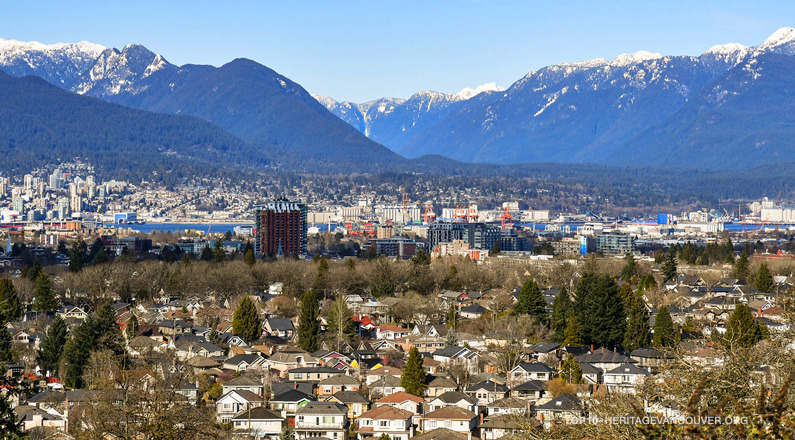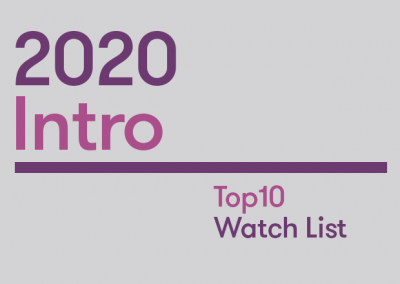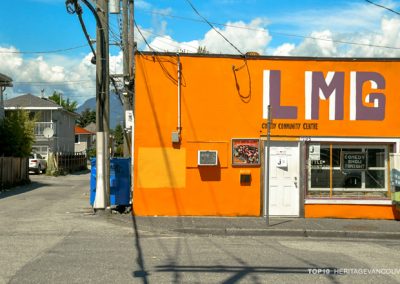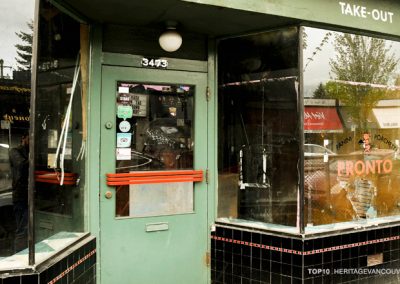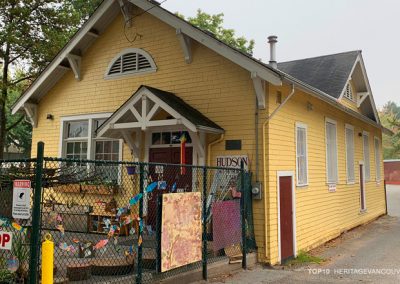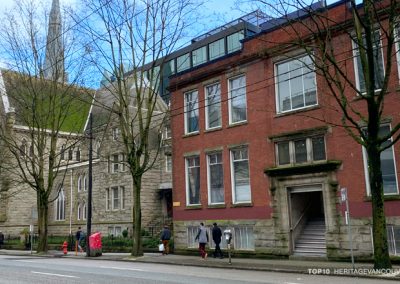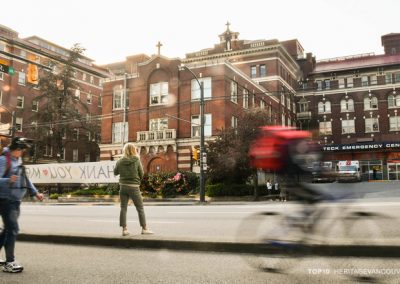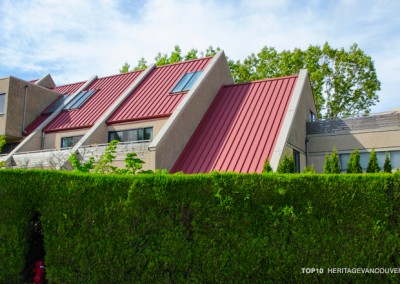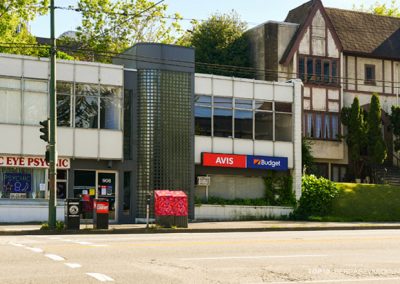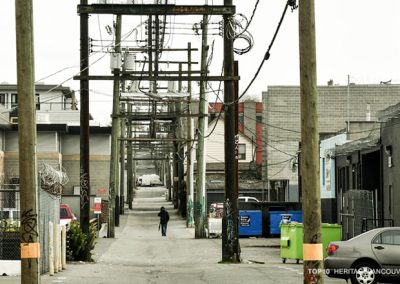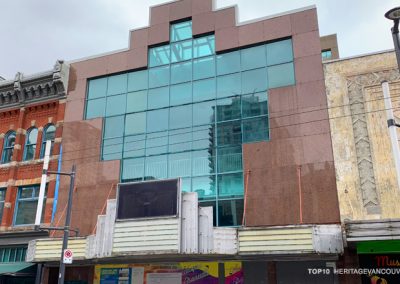In 2018 the City of Vancouver started a city-wide planning process intended to set a vision for the continued growth and development of the city over the next 50 years.
Our built, cultural and social heritages will be impacted by this plan, either negatively or positively and as such it is critical that the heritage and wider communities engage with this work and help make our histories (and future histories) an important part of the new plan. We urge Vancouverites to engage with their city as the plan develops from now until 2022.
The Vancouver Plan is intended to address all of Vancouver from Stanley Park to Boundary Road. It will be carried out within the context of the Metroregion policy frameworks (ie Regional Growth Strategy), City-wide strategies (ie Culture Shift, Vanplay) and incorporate existing neighbourhood plans (Grandview Woodlands, Marpole, etc). It will pay close attention to local and regional First Nations inputs.
With all of these items in mind the plan is grappling with an enormous breadth of potential concerns and previous work to address those concerns.
Threat
The Vancouver Plan was initiated in response to civic outcry around the lack of meaningful action to improve housing affordability and urgent efforts to mitigate climate change.
Recognizing that these items are nestled in larger issues, the objectives of the planning process were broadened to include:
- Advancing reconciliation between the City and the Musqueam, Squamish, and TsleilWaututh Nations and urban Indigenous communities.
- Pursuing reconciliation with our historical past, including traditionally marginalized communities.
- Maintaining Vancouver as a diverse and inclusive community.
- Increasing and protecting housing supply that is locally affordable.
- Addressing the city’s transportation needs.
- Growing local jobs in a sustainable and diverse economy.
- Enhancing social well-being and local food security.
- Improving public amenity provision and cultural vitality.
- Rapidly reducing greenhouse gas emissions to help tackle the climate crisis.
- Planning for complete neighbourhoods, exploring new housing types and densities.
- Enhancing sociable and safe places for people and vibrant livable, well-designed neighbourhoods and shopping streets.
- Making connections to the metropolitan region and Cascadia.
Needless to say, this broad scope of work is complex and impacts multiple aspects of our built and cultural heritages. These ambitious objectives have been broken into a few areas of work: creating a 50 year vision, a strategic policy framework of a number of “big moves”, outlining a high level physical plan and public investment strategy, determining metrics for success, and engaging in partnerships for implementation.
With the right efforts now, we can create future-oriented heritage goals and frameworks to help continue to preserve our past, tell our stories and enhance our cultural practices and perhaps address/redress our collective colonial past.
The wrong decisions now will have the opposite effect; the continued destruction of our built heritage, the loss of important cultural neighbourhoods and practices, and continued marginalization of Indigenous communities.
There is also a risk that existing neighbourhood plans will be “updated and enhanced” with policies that may align with the Vancouver Plan but may not align with that individual neighbourhood’s values and preferences as articulated in the already approved neighbourhood plan.
Significance
The Vancouver Plan represents the first significant effort at a city-wide physical plan since the 1928/1929 Bartholomew Plan (which among other things included a Paris inspired grand boulevard with fountains and trees along Robson Street).
A few policy efforts have been made in the recent past to articulate citywide policies and frameworks (ie City Plan Directions, 1992-1995) and a few specific neighbourhood plans were the result (Kitsilano, Grandview Woodlands, Marpole, West End, etc).
The briefing documents note that our city is expected to welcome about 5,500 net new residents each year for a total of 830,000 new people and 90,000 new jobs by 2040 – where and how will all of this happen?
As such and particularly as it relates to built-heritage, this projected growth could have important impacts on our ability to retain, upgrade and enhance existing and future heritage assets in all neighbourhoods. If not taken seriously, misplaced and poorly implemented growth strategies could destroy the unique places that make up our city’s diverse neighbourhoods.
However, with the right efforts and inputs this plan could kick start a new understanding of our cultural and built heritage and enable the inevitable growth and development to create “future heritage” – places and objects and urban practices that our children and children’s children will protect and enjoy.
Position
- Heritage Vancouver strongly encourages the City to carry out a comprehensive heritage update (following up to the Heritage Action Plan) and coordinate this effort with the Vancouver Plan.
- Heritage Vancouver strongly encourages the City to engage with neighbourhood and non-profit groups to lend their expertise and local knowledge in the planning process.
- Heritage Vancouver recommends that every effort be made to include diverse voices in the planning process including non-traditional information gathering methods such as story gathering, citizen-led tours and planning sessions, cultural practice observation/recording, citizen’s assemblies, and other methods to broaden inputs from all of our citizens.
- Heritage Vancouver hopes that the Vancouver Plan will allow new and different architectural and urban development patterns to be implemented throughout the city in order to increase the likelihood of creating “future heritage” and places that matter for the next generation; while also identifying and protecting culturally important urban landscapes, specific historic buildings and other heritage assets.
Actions
- Engage with the Vancouver Plan planning process and encourage your communities to also get involved.
- Speak up for built (recent and historic) heritage and the importance of cultural and social practices for place-character at planning sessions and in your communities.
- Offer to host a heritage-focused information gathering session in your community using the convener toolkits and share your thoughts with planning staff.
Resources
Vancouver Plan – City of Vancouver
Main site
City wide plan site
Council Report and Presentation July 2, 2019
Outlining the history, objectives and scopes of work for the Vancouver Plan
Policy Report, July 2, 2019 (PDF)
Council Presentation, July 9, 2019 (PDF)
City-Wide Plan Update – Vancouver Planning Commission update
Presentation Oct 23, 2019 (PDF)
Metro Vancouver Regional Growth Strategy
Metro Vancouver 2040, Shaping Our Future (PDF)
Updated to February 28, 2020
